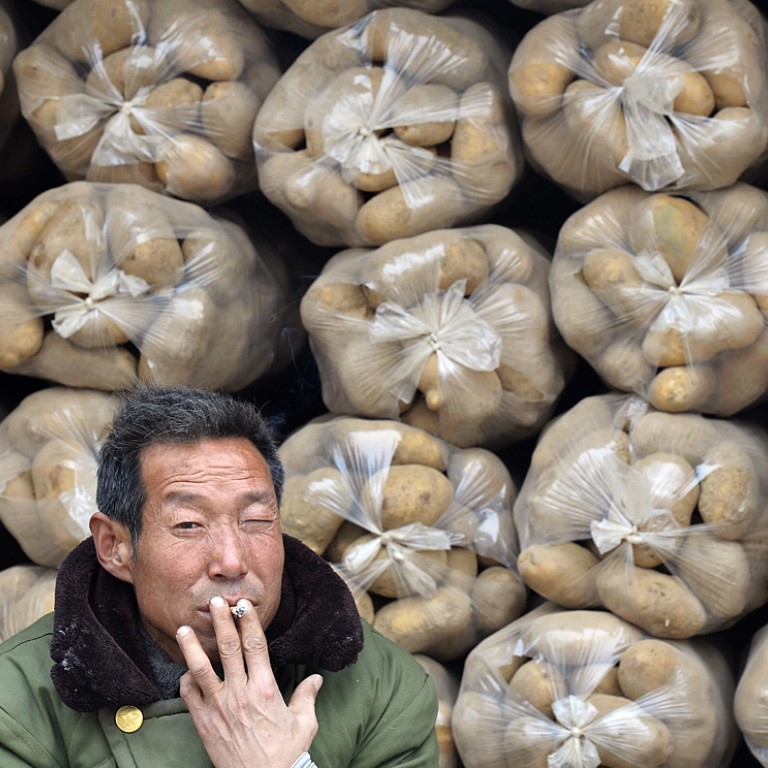
China to grow more potatoes amid struggle to feed world’s most populous nation
Government seeks to double the amount of land given over to the crop as Beijing looks for new staple to meet the country's bigger appetite
Beijing is encouraging farmers to grow more potatoes to meet rising demand for food in the world's most populous nation.
The Ministry of Agriculture plans to nearly double the crop's acreage to 10 million hectares, although analysts warn the government must first convince farmers of the crop's appeal.
The government has identified food security as one of its greatest challenges over the next decade, as the population rises and farmland is swallowed up by urban and industrial growth.
While potato - the world's fourth-largest food crop after rice, wheat and corn - is prepared as both a vegetable and as a snack across most of China, it is used as a staple food only in poverty-stricken areas in the northwest.
Deputy minister of agriculture Yu Xinrong said on Tuesday that he hoped half of the potatoes produced by 2020 would be used as a staple food.
He pledged to improve the vegetable's yield to more than 30 tonnes per hectare.
"[Without] occupying land for growing the three top staple foods, the potato sowing acreage will be raised from the current 80 million mu (5.3 million hectares) to 150 million mu to better guarantee national food security," Yu said.
A report by the World Bank in June forecast that China's food demand would grow to 670 million tonnes a year by 2020 from the present 600 million tonnes.
The ministry says that a lack of land and limited scope for improving farming methods means there is little room to increase rice and wheat production.
Potatoes are a good supplement because they are resistant to cold, dry weather and can grow in relatively barren land.
Ma Wenfeng, an analyst at Beijing Orient Agribusiness Consultant, said the plan would suit southern regions of the mainland, where most cropland was idle in winter. It would also suit the colder northern areas, where farmers could alternate crops.
"But whether the acreage can actually double depends on how much profit the crop can bring to growers," he said. "If it's lucrative enough - for example, if there's no toll for carting potatoes on highways and farmers' markets don't charge potato growers much, then farmers will naturally love to grow more."
Yet farmers often report problems selling potatoes.
Professor Fan Zhihong , from China Agricultural University's College of Food Science and Nutritional Engineering, said the potato was unlikely to replace rice or bread.
"Making it the fourth staple food just means a little more consumption of potato in our daily diet besides what we eat now every day. For example, by processing it into powder and mixing it into wheat flour."
She discouraged people from eating more fried potato chips, but said that prepared in healthier ways the food could provide more vitamin C and dietary fibre than rice or wheat.

